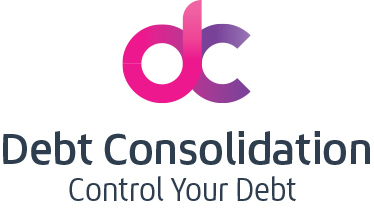Debt consolidation loan clears your debts by paying off all your outstanding debts by replacing it with an easy to pay loan with a monthly payment usually lower than your previous payments combined. It helps you better manage your debts and clear up your credit file.
Know how much you owe
The easiest way to do this is by getting free copies of your credit file form the three major credit bureaus in the country. You can check the updated records of your financial obligations, such as dormant accounts, unpaid debts and credit enquiries. It would also help if you can collect all your credit card receipts and utility bills and compare them with the entries in your credit file. If there are some errors, you can file a dispute with the concerned reporting agency and they will make the necessary adjustments in your credit record. Next, add up all your debts to know how much money you need to borrow to consolidate them all.
Prepare your list, organize your overdue and soon-to-be due accounts and compare them with your expected income. If you think you don’t have enough money to pay them all at once, then you can consider applying for low-cost consolidation loans that would allow you to repay a much lower amount on a monthly basis. If you think the full amount of loan that you qualify for may not be enough to cover all your debts then choose the debts with the highest interest before they interests accumulate even faster.
If you own a home, you can use it as collateral, depending on its estimated value. Or, you can also apply for home loan NSW using the equity you built overtime to get a much higher loan amount. Just make sure to clear off the interest rates on your home loan before you sign the application form.
Don’t buy on credit
Say goodbye to consumer credits, especially if you were completely reliant on them for buying items that depreciate with time-such as clothing and car repairs. If you cannot afford it today, then don’t charge it on your future income. Don’t carry debt for months or years for something that will not increase in value over time.
For example, if you can buy a small appliance for $100 at the moment, why would you buy it on credit (rent to own) when it would triple the original cost? Remember that rent to own purchases charges up to 200 percent of the original purchase price or more. The truth is that credit cards would even charge less. Let’s say if you buy it using a credit card you may have to pay 18% to 24% for a single purchase. But, that is still lower than the cost of rent to own consumer loans. Still, why pay for it using a credit card? As a rule, when you are trying to save money and reduce your debts, the best thing to do is to avoid buying something on credit.
Repay your debts on time
If your application for consolidation loan is approved, make sure to repay your debt on time. One of the best strategies for reducing the cost of carrying a debt is by making timely payments. This way, you don’t have to pay the penalties or additional charges. If possible, pay as frequent as you can, so you can pay off the debt quickly. It is also important to enquire about pre-payment penalties to avoid paying more than what you signed up for.
When you cannot avoid consumer debt or credit card debts, try to pay off what you can each month. Next time, borrow only to pay for items that appreciate in value or those that could help you grow your assets. If you are spending money on your credit card’s annual fee, even if you pay off your balance every month—close it.
Invest for the rainy days
If you have investments at the moment, there’s a chance that price fluctuations could greatly reduce in the near future. The stock market may be overvalued to day but it may plunge down the next month or so. Investments are volatile and that’s not the end of volatile. Businesses may rise and fall and employers may hire and fire. That’s why when you get a home loan; make sure that you are spending the money wisely.
You can pay off your existing loans, consolidate high-interest debts or renovate your home or pay for a new car. Whatever your purpose is, make sure you have a little extra to grow your nest egg and to pay for your insurance. Don’t ignore the need for mortgage insurance as well as your personal insurance. It would keep you afloat when things don’t go your way. It is also important to put some money into your emergency fund. Make sure that the extra money from your consolidation loan will be used to have at least 3-months’ worth of living expenses, and emergency fund for emergency car repairs and trip to the hospital.
Contact Debt Consolidation for more information.

